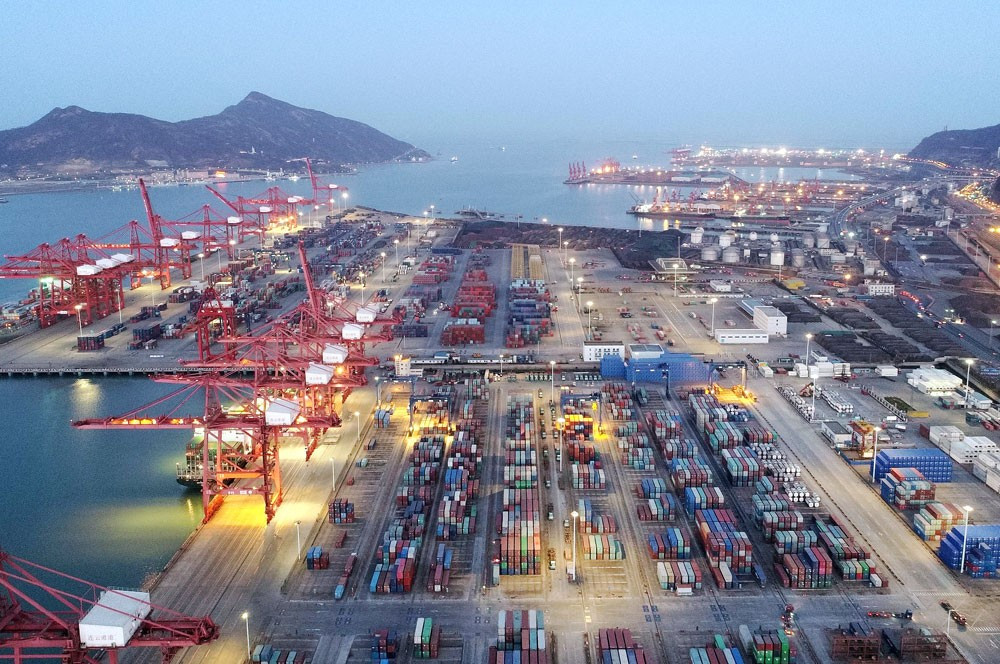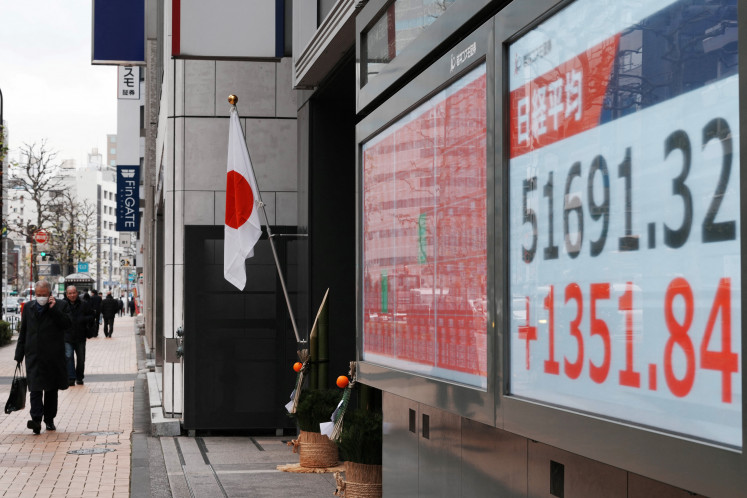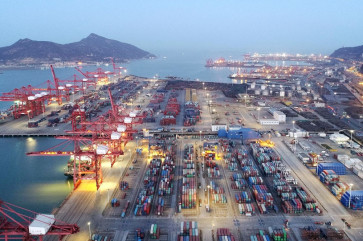Popular Reads
Top Results
Can't find what you're looking for?
View all search resultsPopular Reads
Top Results
Can't find what you're looking for?
View all search resultsAnalysis: Trade Ministry deregulates imports to boost competitiveness
Change text size
Gift Premium Articles
to Anyone
T
he Trade Ministry has rolled out a wide-ranging regulatory reform package aimed at easing import restrictions and cutting red tape, in a bid to revitalize the manufacturing sector, respond to global trade pressures amid United States (US)’ tariff hikes, and bolster Indonesia’s competitiveness as it eyes membership in the Organisation for Economic Co-operation and Development (OECD).
The Trade Minister Regulation (Permendag) No. 8/2024 on import policy is now replaced by Permendag No. 16/2025, supporting the eight sector-specific rules covering imports of textiles, agricultural goods, chemicals, electronics, consumer products, and more. Together, these reforms deregulate imports across 10 key commodity groups and simplify procedures affecting 482 Harmonized System (HS) codes.
The eight sector-specific regulations supported by Permendag No. 16/2025 are as following:
- Permendag No. 17/2025 on Textiles and Textile Products Import Policy and Regulation;
- Permendag No. 18/2025 on Agricultural Products Import Policy and Regulation;
- Permendag No. 19/2025 on Salt and Fisheries Products Import Policy and Regulation;
- Permendag No. 20/2025 on Chemical, Hazardous, and Mined Materials Import Policy and Regulation;
- Permendag No. 21/2025 on Electronic and Telematic Products Import Policy and Regulation;
- Permendag No. 22/2025 on Certain Industrial Products Import Policy and Regulation;
- Permendag No. 23/2025 on Consumer Products Import Policy and Regulation; and
- Permendag No. 24/2025 on Used Products and Non-Hazardous and Non-Poisonous Waste Import Policy and Regulation.
Furthermore, the deregulation affects 482 Harmonized System (HS) codes across 10 key commodity groups. The majority—441 HS codes—cover forestry products. The rest include raw and supporting industrial materials, such as subsidized fertilizer (7 HS codes), other types of fuel (9), plastic raw materials (1), saccharine, cyclamate, and alcohol-based fragrance materials (6), certain chemical materials (2), and pearls (4). Two HS codes apply to food trays, which are likely intended to support the government’s Free Nutritious Meal program. Additionally, the deregulation covers six HS codes for footwear and four for bicycles and tricycles, aimed at enhancing the competitiveness of domestic industries.
Under the new policy, imports of qualifying forestry products will now only require an import declaration issued by the Forestry Ministry, significantly simplifying the process. For key industrial inputs such as subsidized fertilizer, other types of fuel, plastic raw materials, and food trays, import permit requirements have been fully removed. Meanwhile, imports of other deregulated items—such as saccharine, cyclamate, alcohol-based fragrance materials, certain chemical materials, pearls, footwear, bicycles, and tricycles—are now subject only to surveyor reports, reducing administrative burdens while maintaining a degree of oversight.
In addition to the import-related reforms, the Trade Ministry issued Permendag No. 25/2025 to streamline franchising requirements. Businesses may now use their proof of registration as a temporary substitute for the Franchising Registration Certificate, if the certificate has not been issued by regional governments within five working days. To further eliminate regulatory overlap and inconsistency, the ministry also revoked four outdated regulations: Permendag No. 36/2007 on Trade Business Permits, Permendag No. 6/2019 on General Provisions for the Distribution of Goods, Permendag No. 25/2020 on Corporate Annual Financial Statements, and Permendag No. 4/2023 on Subsidized Fertilizer Procurement and Distribution, citing conflict with higher-level legal frameworks.
Coordinating Economic Minister Airlangga Hartarto said the was done as part of efforts to raise Indonesia’s competitiveness amid mounting external pressures, including a critical assessment by the U.S. Trade Representative’s 2025 report on trade barriers. He added that the import policy deregulation is part of adjustments for the Indonesia-European Union Comprehensive Economic Partnership Agreement (IEU-CEPA), negotiations with the US on the latter’s tariff hikes, and Indonesia’s ongoing efforts to join the OECD.



















